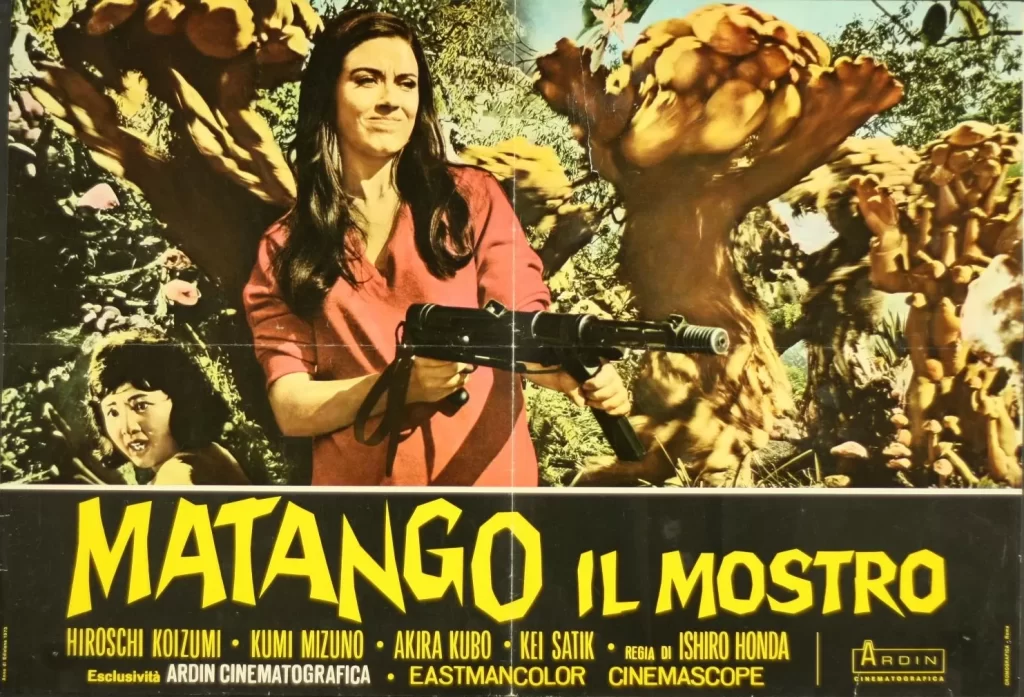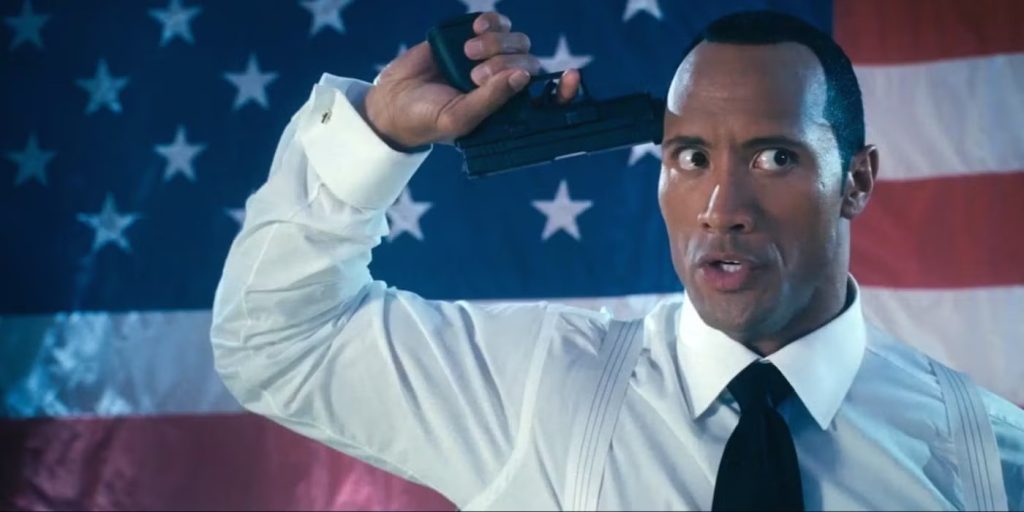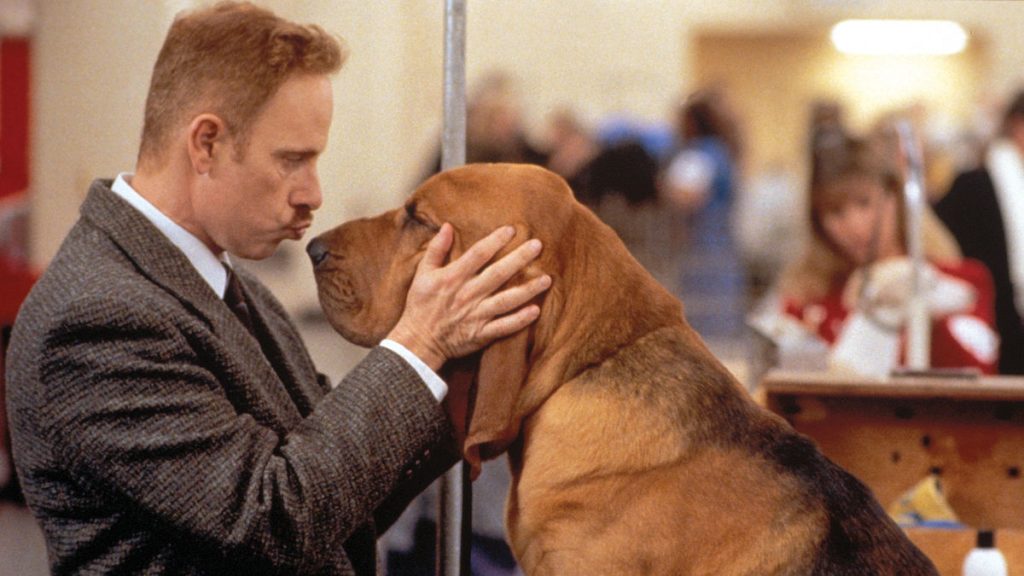Welcome to Harvey’s Hellhole, a monthly column devoted to spotlighting the movies that were poorly marketed, mishandled, reshaped, neglected or just straight-up destroyed by Harvey Weinstein during his reign as one of the most powerful studio chiefs in Hollywood. In part one of “Summer of ‘99,” a new series on films Miramax dumped in theaters with zero fucks during those magnificent three months in 1999, let’s start first with a British import that, despite critical acclaim and an amazing lead performance, was basically discarded by that bitch-ass Weinstein.
You can thank Salman Rushdie for My Son the Fanatic—both the movie and the short story it’s based on.
Novelist (The Black Album) and screenwriter (My Beautiful Laundrette) Hanif Kureishi wrote the story, which first appeared in The New Yorker in 1994, as a response to the global controversy Rushdie stirred up when he released his 1988 novel The Satanic Verses. Once Ayatollah Khomeini issued a fatwa on Rushdie (“one of the most significant events in postwar history,” Kureishi once said), Kureishi also noticed a new trend bubbling up in the U.K.: young Asian men converting to fundamentalist Islam. “It perplexed me that young people, brought up in secular Britain, would turn to a form of belief that denied them the pleasures of the society in which they lived,” Kureishi wrote in the book introduction to his Fanatic script.
Set in working-class Britain, Fanatic is mainly about Parvez (Om Puri), a married, Pakistani cabbie who has to deal with his son Farid (Akbar Kurtha) becoming a hardcore Muslim. His boy gives away his items, calls off his engagement to his white fiancée, and starts hanging with others who follow the teachings of the Quran. Unfortunately, Parvez lives a life that clashes with his kid’s newly adopted views. He enjoys the simple pleasures of alcohol, pork, and early 20th-century jazz records from Louis Armstrong and Dinah Washington. He also drives around prostitutes and their clients, gaining a friend and confidant in Bettina (Rachel Griffiths), the resident hooker-with-a-heart-of-gold.
An upside-down spin on teenage rebellion (the dad is the loose, liberal one this time around), the short story is an angry, bleak portrait of a father and son aggressively drifting apart due to religious and personal differences. However, the film version, directed by Indian-British film/TV director Udayan Prasad, is done in a lighter, dramedic fashion. Kureishi beefs up the plot with new characters and elements. He makes Parvez and Bettina eventual lovers, as they both work to appease an obnoxious, visiting German (Stellan Skarsgard) – aptly named Mr. Schitz – who comes to town looking for whores, coke and other hedonistic thrills. He also makes Parvez more sympathetic, presenting him as a generally decent fellow whose son and wife (Gopi Desai) believe he’s strayed too far away from Islamic values.
Puri, who passed away in 2017, gives a performance that has you rooting for him, initially playing Parvez as your typical, stereotypically fussy Pakistani immigrant, slapping on a shit-eating grin to appease powerful, pale-faced folk while pushing his kid to be an exceptional (and acceptable) young man. Once Farid turns his home into a makeshift mosque (he and his fellow purists eventually start harassing the prostitutes, including Bettina), the fussy facade wears off.

When he’s not attempting to put on a brave face, Parvez usually rocks an expression that can be best described as “despondent disgust.” He realizes the sacrifices he made for his family to have a life free of oppression, judgment, and tyranny have been all for naught. They would rather live the other way; he was just too busy chilling in his basement with his scotch and jazz records to pick up on it. (Even Pakistani men need man caves.)
Critics were floored by Puri’s performance. “He can veer from menace to tenderness in milliseconds, and though he’s physically compact, he has, as one of his directors put it, ‘screen presence for miles,’” wrote Michael Sragow, in a 2000 Salon piece titled “Is Om Puri our greatest living actor?” Even though Fanatic appeared on several critics’ year-end, ten-best lists, Miramax – which picked up the film when it premiered at Cannes in 1997 and brought it to America two years later – didn’t really do much to push its existence. They did try to market it as a love story, photoshopping Puri and Griffiths gazing into each others’ eyes on the U.S. poster.
Prasad denied rumors that Fanatic’s release holdup was due to Weinstein predictably demanding a new, more positive ending. (Prasad did admit that they discussed the ending and considered alternatives.) However, Kureishi later confirmed that Harvey Scissorhands was on the prowl. “He brought enormous pressure to it and it was very difficult to resist,” he said in 2000. Fanatic does end on a somber, ambiguous note, as Parvez sits on top of his stairs, sipping scotch, possibly pondering his next move. It may not be a happy ending, but it’s still a quietly satisfying moment for both Parvez and the audience.
It’s unfortunate that My Son the Fanatic didn’t get the opportunity to find a stateside audience. It practically warned viewers that Islamic extremism was on the rise and recruiting fresh faces on the regular. (I’m not saying it could’ve stopped 9/11, but it would’ve hipped us to who these folks are and what they are capable of.) But, at its core, it’s still about a man trying to prevent his son from raging war on everybody and everything in the West, and reminding him that there are always more peaceful, more fulfilling ways to live. As Parvez tells his son near the end, “There are many ways of being a good man.”
“My Son the Fanatic” is available to stream on BFI Player Classics.



